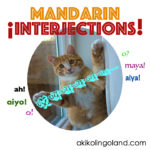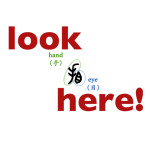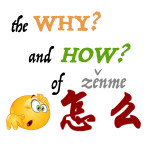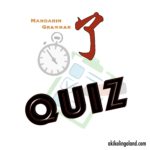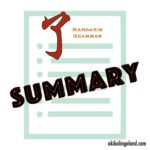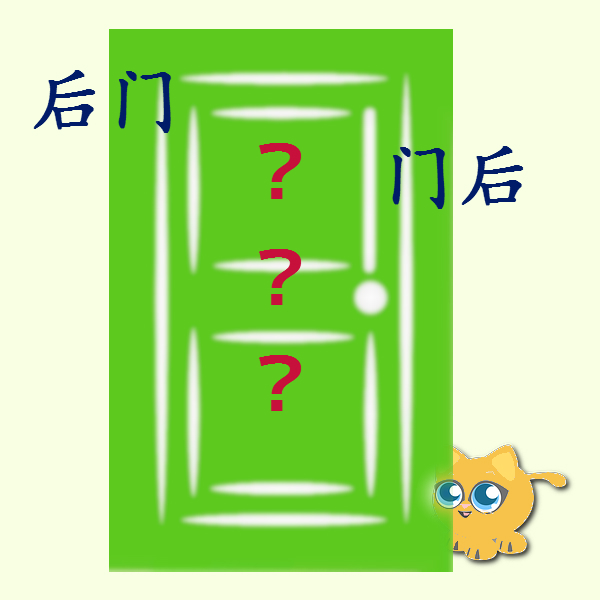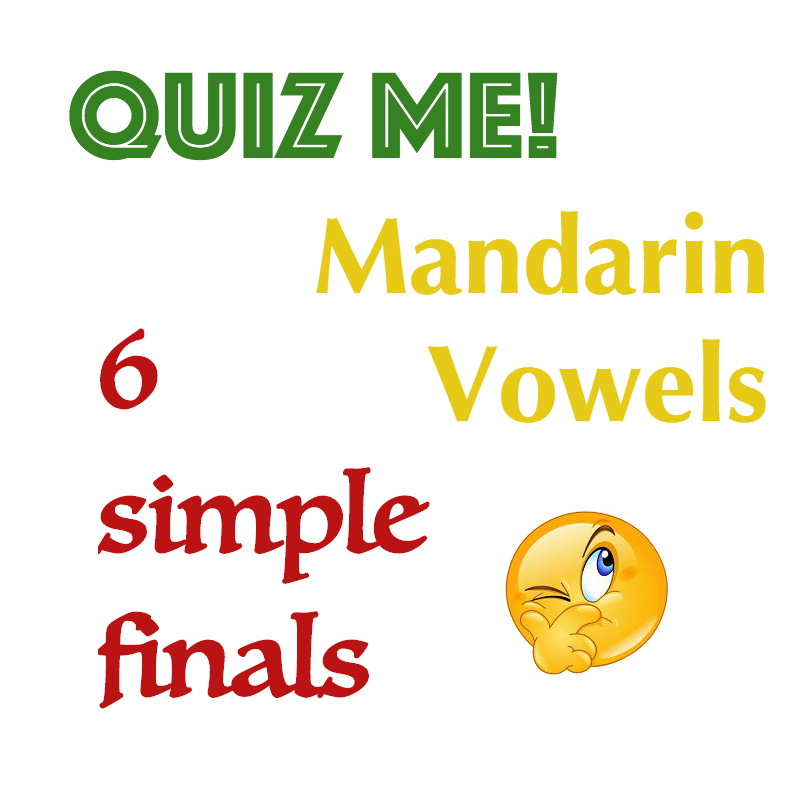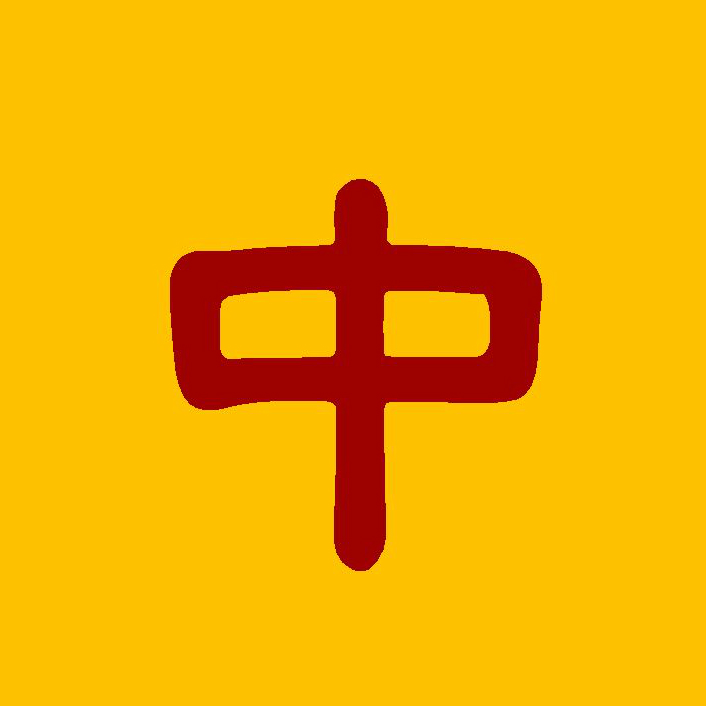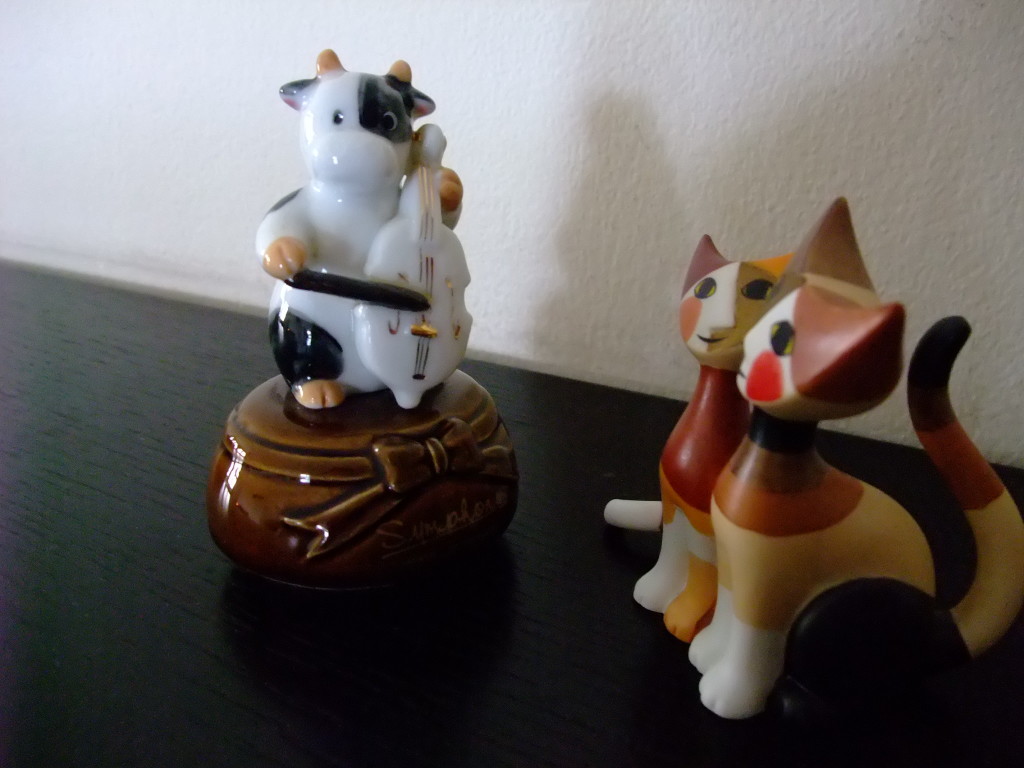好 hao – No good if you don’t know it
你好 Nǐ hǎo!
This is probably the first phrase that a beginner picks up when learning Mandarin. And you would have learnt that it is a greeting that means ‘Hello’, whereby 你 nǐ means ‘you’, and 好 hǎo, ‘good’, ‘fine’. Do you also know that the word 好 expresses a lot more than just ‘nice’? In this lesson, we’ll find out just how versatile this word is!
First things first. Are you aware that there are two ways to read this character? It can be read in the third tone hǎo, and also in the fourth tone hào. Good if you knew this, but if you didn’t, well, now you do!
Let’s start from the third tone hǎo. This is mostly an adjective, and the basic meaning is, as you know, ‘good’. It has several uses, and we will be looking at five of the most common ones.
I. 好 ― Good
The fundamental meaning of 好 is ‘good’, ‘well’, ‘fine’, ‘nice’. How do we use it then? Let’s look at four structures.
1. All-round ‘hello’
So I said that 你好 nǐ hǎo is literally, ‘you good’, but specifically, what about you is good? Your state, your situation, your health. This would be clearer in its question form – 你好吗?Nǐ hǎo ma – How are you? Take away the question marker 吗, and you can look at the greeting 你好 as a shortened statement of ‘I hope you are fine’. What if you want to greet someone else? Simply change the subject 你 to whoever it is!
1a)
Dàjiā hǎo!
大家好!
大家好
Hello everybody!
1b)
Lǎoshī hǎo!
老师好!
老师好
Hello Teacher!
1c)
Tóngxuémen hǎo!
同学们好!
同学们好
Hello classmates!
1d)
Shūshu hǎo!
叔叔好!
叔叔好
Hello uncle!
1e)
Āyí hǎo!
阿姨好!
阿姨好
Hello auntie!
We can also replace the person with a time word.
2a)
Zǎoshang hǎo!
早上好!
早上好
Good morning!
2b)
Xiàwǔ hǎo!
下午好!
下午好
Good afternoon!
2c)
Wǎnshang hǎo!
晚上好!
晚上好
Good evening!
Let’s have a look at other structures of this fundamental meaning ‘good’.
2. Predicate describing the subject before it
3)
Māma: Nǔ’ér zhè nánpéngyou hǎo, wǒ xǐhuan!
妈妈:女儿这男朋友好,我喜欢!
女儿这男朋友好
Mum: Our daughter’s boyfriend is great, I like him!
Bàba: Shì ma? Nǎli hǎo?
爸爸:是吗?哪里好?
哪里好
Dad: Really? What’s good about him?
Māma: Rénpǐn hǎo, tóunǎo hǎo, yàngmào hǎo, yàngyàng hǎo!
妈妈:人品好,头脑好,样貌好,样样好!?
样样好
Mum: He has a good personality, a good brain, good looks, good everything!
4)
Xiǎomíng: Jīntiān tiānqì zhēn hǎo!
小明:今天天气真好!
今天天气真好
Xiǎomíng: What nice weather today!
Xiǎolì: Nǎlǐ hǎo? Rèsǐ le!
小丽:哪里好?热死了!
热死了
Xiǎolì: What is good? (You must be kidding!) It’s mighty hot!
3. Attribute modifying the noun after it
5)
Wǒ yǒu yī ge hǎo xiāoxi hé yī ge huài xiāoxi, nǐ yào xiān tīng nǎ ge?
我有一个好消息和一个坏消息,你要先听哪个?
好消息坏消息
I have good news and bad news. Which do you want to hear first?
6)
Hǎo shì bù chū mén, huài shì chuán qiān lǐ.
好事不出门,坏事传千里。
好事不出门
Good news remains unheard, while bad news spreads far and wide.
4. Expression of agreement
7)
Míngtiān péi wǒ yīqǐ qù, hǎo ma?
A: 明天陪我一起去,好吗?
明天陪我去
A: Can you go with me tomorrow? (Go with me, alright?)
Hǎo a!
B: 好啊!
好啊
B: Sure!
8)
Wǒmen míngtiān qù ba!
A: 我们明天去吧!
我们明天去
A: Let’s go tomorrow!
Hǎo!
B: 好!
好
B: Okay!
II. 好 ― Easy
Let’s move on to the second meaning of 好. Placed in front of verbs, it indicates that something is easy to do. The opposite is 不好 bù hǎo ~ or 难 nán ~.
9)
Zhè zhī bǐ zhēn hǎoxiě.
这支笔真好写。
这支笔真好写
This pen writes well (nice to write with).
10)
Hànyǔ nánxué ma?
A: 汉语难学吗?
汉语难学吗
A: Is Mandarin hard to learn?
Bù nánxué, hěn hǎoxué.
B: 不难学,很好学。
不难学
B: It’s not hard to learn, it’s easy.
11)
Zhège jùzi bù hǎodǒng, děi gǎiyigǎi.
这个句子不好懂,得改一改。
这个句子不好懂
This sentence isn’t easy to understand, we need to tweak it a bit.
III. 好 ― Pleasant
And now on to the third meaning. Placed in front of some verbs, it indicates pleasantness on the senses. The opposite is 不好 bù hǎo ~ or 难 nán ~.
12)
Zhēn hǎokàn de qúnzi, nǎli mǎi de?
真好看的裙子,哪里买的?
真好看的裙子
What a nice (good-looking) skirt! Where did you buy it?
13)
Zhè shǒu gē yīdiǎnr dōu bù hǎotīng, wèishénme zhème liúxíng?
这首歌一点儿都不好听,为什么这么流行?
这首歌不好听
This song isn’t nice (good-sounding) at all, why is it so popular?
14)
Zhè shì wǒ hēguo zuì hǎohē de kěkě!
这是我喝过最好喝的可可!
最好喝的可可
This is the most tasty (nice to drink) cocoa that I’ve ever had!
15)
Wǒ lǎopo yǐqián zuò fàn chāo hǎochī, bù zhīdào wèishénme xiànzài zuò de bù hǎochī le, yuè zuò yuè nánchī.
我老婆以前做饭超好吃,不知道为什么现在做得不好吃了,越做越难吃。
我老婆做饭
My wife used to make super yummy (nice to eat) food, but for some reason now it no longer tastes good. It’s getting more and more unpalatable.
At this point, you may be wondering if this third use of 好 could be easily confused with the second use? They both come in front of verbs, and even the opposite structure (不好 bù hǎo ~ or 难 nán ~) is the same. If you think about it, they are both derivatives from the fundamental meaning of ‘good’. For example, 好写 hǎoxiě ([pen] writes well) is ‘good/easy to write’, and 好看 hǎokàn (pretty) is ‘good/nice to look at’. While it may seem that this makes for ambiguous cases, it actually does not usually cause misunderstandings. Context makes it clear, and more importantly, combinations of pattern III) are not that many. The following examples are more or less what you would encounter.
16a)
hǎokàn
好看
好看
(person or thing) pretty; (movies or books) interesting
16b)
hǎotīng
好听
好听
(music, sounds or words) pleasant
16c)
hǎochī
好吃
好吃
(food) tasty
16d)
hǎohē
好喝
好喝
(drinks) tasty
16e)
hǎowén
好闻
好闻
to smell good
16f)
hǎowánr
好玩儿
好玩儿
fun, interesting
16g)
hǎoshòu
好受
好受
to feel good
As you can see, these are expressions that indicate feelings on the senses. Moreover, these combinations are already mostly seen as fixed compound words, so they hardly would make room for misunderstandings. Let’s take a look at the following example.
17)
Tiān a, hǎokàn bù hǎoyòng de dōngxi jìngrán zhème hǎomài, zhè niántóu qián zhēn hǎozhuàn.
天啊,好看不好用的东西竟然这么好卖,这年头钱真好赚。
好看不好用的东西
Goodness, such a useless thing that only looks good could sell so well? Nowadays it’s easy to make money.
If there is possibility of being unclear, we could always use other ways of expression. We’ll use 好看 and 好吃 as examples.
18a)
Zhè běn shū hěn hǎokàn, wǒ kànle sān biàn le.
这本书很好看,我看了三遍了。
这本书很好看
This book is interesting. I’ve read it three times.
18b)
Zìtǐ fàng dà jiù róngyì kàn le.
字体放大就容易看了。
字体放的大
Enlarge the font and it will be easy to read.
19a)
Zhè miàn bù hǎochī, wǒ chī bu xià.
这面不好吃,我吃不下。
这面不好吃
These noodles don’t taste good. I can’t eat them.
19b)
Zhè miàn yòng sháozi chī tài xīnkǔ le, yòng kuàizi ba.
这面用勺子吃太辛苦了,用筷子吧。
用筷子吧
These noodles are hard to eat with a spoon. Use chopsticks.
IV. 好 ― Complete
And next, let’s look at the fourth meaning. Placed after verbs, it acts as a result complement to indicate completion or satisfactory state of an action.
20)
Wǒ chīhǎo le, kěyǐ chūfā le.
我吃好了,可以出发了。
我吃好了
I have finished eating. We can leave now.
21)
Wǒ méi kànhǎo, néng zài shìfàn yī biàn ma?
A: 我没看好,能再示范一遍吗?
我没看好
A: I didn’t see it well, can you demonstrate again?
Hǎo, wǒ zài shìfàn yī biàn, nǐ kànhǎo.
B: 好,我再示范一遍,你看好。
你看好
B: Alright, I’ll demonstrate again, watch carefully.
22)
Hànyǔ zài nánxué, wǒ yě yīdìng yào bǎ tā xuéhǎo!
汉语再难学,我也一定要把它学好!
一定学好汉语
No matter how hard to learn Mandarin is, I shall master it!
23)
Zhè fēng xìn zhēn bù hǎoxiě, wǒ xiěle bàntiān yě hái méi xiěhǎo.
这封信真不好写,我写了半天也还没写好。
这封信真不好写
This letter is really hard to write. I’ve been writing it the whole day yet am not finished writing.
You might have noticed by now that word order in Mandarin is of utmost importance. The difference between pattern IV) and patterns II) and III) is simply a flip in the order, but the meaning is completely different. 好吃 hǎochī is ‘tasty’ (nice to eat), while 吃好 chīhǎo is ‘to be done eating’. 好看 hǎokàn is ‘good-looking’, while 看好 kànhǎo is ‘to look carefully’. 好学 hǎoxué is ‘easy to learn’, while 学好 xuéhǎo is ‘to learn well’. 好写 hǎoxiě is ‘nice to write’, while 写好 xiěhǎo is ‘to be done writing’. So, do be careful which word comes first.
V. 好 ― Very
Finally the last meaning of third tone hǎo that we’ll looking at today. This acts as an adverb and comes before an adjective or a measure word, to emphasise intensity. It is colloquial and emotive, and often translated as ‘very’, ‘so’, ‘quite’, ’such’, ‘what’.
24)
Hǎo jiǔ bù jiàn!
好久不见!
好久不见
Long time no see!
25)
Hǎo kě’ài de xiǎomāo, zhēn xiǎng dài huí jiā!
好可爱的小猫,真想带回家!
好可爱的小猫
What a cute kitten! I’d so much love to bring it home!
26)
Zhè ge rén wǒ jiànguo hǎo jǐ cì.
这个人我见过好几次。
这个人我见过好几次
I’ve seen this person quite a few times.
27)
Nǐ chuān zhè yīfu hǎo hǎokàn a!
你穿这衣服好好看啊!
你穿这衣服好好看
You look so pretty in this outfit!
28)
Zhè ge míngzi hǎo nánniàn a!
A: 这个名字好难念啊!
这个名字好难念
A: This name is so hard to read!
Yīdiǎnr dōu bù nánniàn, wǒ juéde hǎo hǎoniàn!
B: 一点儿都不难念,我觉得好好念!
不难念
B: Not hard to read at all, I find it very easy to read!
Moving on to the fourth tone hào. Fortunately, the fourth tone does not have as many uses as the third tone. Mostly, the problem is in deciding whether it is the third tone hǎo or the fourth tone hào when reading.
好 ― Like
In the fourth tone, it acts as a verb, meaning ‘to like’. Let’s have a look at some examples.
29)
Nǐ yǒu shénme àihào?
你有什么爱好?
你有什么爱好
What hobbies do you have?
30)
Jiějie hàodòng, mèimei hàojìng.
姐姐好动,妹妹好静。
好动好静
The elder sister is active (likes to move), while the younger sister is quiet (likes quiet).
31)
Zhēn shì ge hàoxué de háizi!
真是个好学的孩子!
好学的孩子
What a studious child!
32)
Tā cóng xiǎo jiù hěn hàowánr.
她从小就很好玩儿。
从小很好玩儿
She has always been playful since she was a child.
33)
Tā hào miànzi, bù huì rèncuò de.
他好面子,不会认错的。
他好面子
He is proud (likes to keep face), so he won’t admit his mistake.
34)
Zhè rén hàojiǔ hàocái yòu hàosè, nǐ qiānwàn bù néng gēn tā jiéhūn a!
这人好酒好财又好色,你千万不能跟他结婚啊!
好酒好财好色
This man is alcoholic, greedy and lustful. You mustn’t marry him!
35)
Nǐ zhème hào chī lǎn zuò, shuí gǎn qǐng nǐ ne?
你这么好吃懒做,谁敢请你呢?
好吃懒做
You’re such a lazy glutton (idiom: love to eat and lazy to work). Who would dare to employ you?
36)
Nǐ zěnme zhème hào guǎn xián shì?
你怎么这么好管闲事!
好管闲事
Why are you such a busybody (love meddling in other people’s business)!
Sometimes, you may be unsure if you are looking at third tone 好 or fourth tone 好. In such cases, context is your only key.
37a)
Zhè háizi tài hǎowánr le! Wǒ kěyǐ tiāntiān lái gēn tā wánr ma?
这孩子太好玩儿了!我可以天天来跟他玩儿吗?
37a-太好玩儿
This child is so much fun! Can I come play with him every day?
37b)
Zhè háizi tài hàowánr le! Zhēn ná tā méi bànfǎ.
这孩子太好玩儿了!真拿他没办法。
37b-太好玩儿
This child is so playful! He’s too much for me to handle.
38a)
Zhēn shì hǎo jiǔ! Zìjǐ yī ge rén hē tài kěxī le.
真是好酒!自己一个人喝太可惜了。
38a-好酒
Such good wine! What a shame to be drinking it alone.
38b)
Zhēn shì hàojiǔ! Hē nàme duō shāng shēn a!
真是好酒!喝那么多伤身啊!
38b-好酒
What an alcoholic! Drinking so much is bad for your health.
I hope you found the above 好学 hǎoxué! Until the next lesson, 再见 zàijiàn!
If you’ve enjoyed this, don’t forget to share, and do join me on Facebook, YouTube, Twitter, Pinterest!

